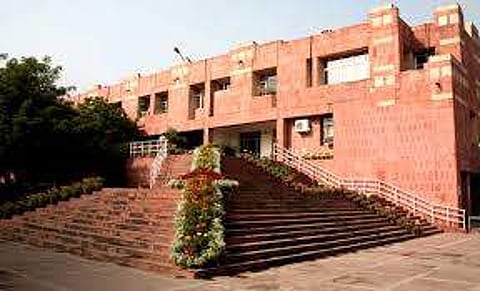

The JNU administration finds itself in a fix after two agencies they had approached to conduct the online exams bailed on them. The administration had approached the National Testing Agency and National Informatics Centre to conduct their online entrance exam but both have reportedly expressed their inability to conduct the exam. With today being the last day for applications and time quickly running out, the JNU Students' union, applicants and current students are worried about this year's entrance exam.
The JNUSU has been against the exam from the very beginning because they were not included in the decision-making process. They have stated many times that all statutory and democratic rules were violated in the process of implementing the online entrance exam. The administration had barred the JNUSU from attending the academic council meeting that had unilaterally approved the exam.
The following are the reasons why many are supporting the JNUSU's stand against online entrance exams:
The questions in the exams are being outsourced, which the JNUSU and the JNUTA claims tramples upon the rights of the faculty and departments.
Outsourcing of the exam could be opening up possibilities of leaks and other malpractices. In case these is such a situation, JNU will not be able to hold people who are not its employees accountable for their mistakes. There have been several instances of student facing glitches and leaks in many instances including NEET, SSC and DU.
The admin's demand for answer keys months before the exam, the JNUSU says, raises concerns about breach of security. The JNUSU in statement had said that earlier. the centre would keep the answer key safe and would bring it to the evaluation centre, circulate and take it back after all entrance exam papers are evaluated. Never was the answer key given to JNU admin in advance.
The MCQ system of the exams has been heavily criticised from the very beginning. The critics believe MCQ format is partial and negates a comprehensive evaluation of analytical, writing and other skills which are so very necessary, particularly in Humanities and Social Sciences.
Students from distant areas and marginalised backgrounds will be heavily discriminated against as online exam necessarily requires good internet connection in the area as well as computer proficiency as an additional skill for the examinees.
The JNUSU has also claimed that the proposal to implement the online entrance exam had no mention of how the deprivation points would be taken into account
